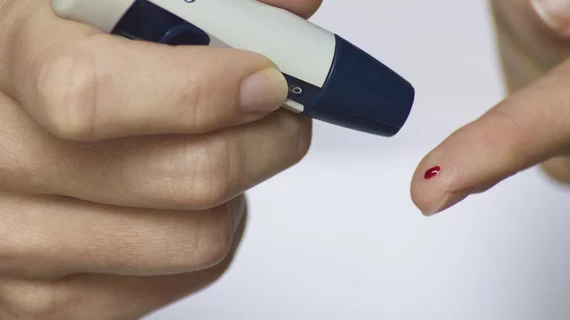Walmart launches telehealth diabetes program
Walmart has launched the Walmart Health Virtual Care Diabetes Program, a virtual program to help patients with type 1 or type 2 diabetes and assist employers and other institutions.
The program is run by MeMD, a telehealth provider Walmart acquired last year. It is available as a standalone option or as part of a comprehensive medical and behavioral telehealth program. The program aims to help employees and employers close the gap on diabetes care management.
More than 37 million Americans have been diagnosed with diabetes, and the number of Americans impacted is expected to grow 54% by 2030, according to Walmart. There is room for improvement in diabetes management, as fewer than 20% of people with diabetes in the U.S. meet recommended treatment management goals, according to the National Institutes of Health (NIH). Employers face more than $20 billion per year in costs as a result.
“Walmart Health collaborated with the American Diabetes Association to bring this evidence-based virtual program to fruition,” John Wigneswaran, MD, Walmart’s chief medical officer, said in a statement. “Our aim is to empower patients with the most up-to-date diabetes education and clinical care so they can take control of their health. Our program focuses on a patient’s physical and mental health, which also helps employers maintain healthier workforces and drive down overall healthcare costs.”
HealthExec Summary
The launch of the program comes as Walmart has increasingly stepped into the healthcare industry. Diabetes is one of the most expensive chronic care conditions across the U.S. healthcare system; an estimated one-third of all Medicare expenses are spent on people with diabetes, according to one study published in Health Affairs. Medicare Part D spending per user on insulin products increased by 358% between 2007 and 2016, according to data from KFF.
Plus, care management is expensive for patients. The price of insulin has soared over the last several years, prompting calls for monthly caps on how much patients would have to pay. Lawmakers have also become involved in the insulin debate, and President Joe Biden recently mentioned the high prices in his state of the union address in March.
With the high cost of care management, diabetes patients face financial burdens. Not meeting care recommendations can also have an enormous cost on patients, who may face adverse health outcomes as a result.
“Failure to meet recommended treatment goals results in an extra five and a half days of missed work per person, according to the NIH, along with an increased risk of hospitalization,” Wigneswaran said. “This is compounded by the fact that patients with diabetes are two to three times more likely to have depression than those without diabetes, and addressing mental health is critical to caring for the whole patient.”
Walmart’s new program is an integrated telehealth solution that merges personalized diabetes education with behavioral health awareness and counseling. Patients in the program have access to an initial consultation with a licensed medical provider to discuss patient history, eating habits and more. Members also participate in identifying gaps in care, depression risks and schedule a follow-up visit with licensed behavioral health therapists to address each area with a focus on mental health management.
Patients can also receive necessary vaccinations, low-cost insulin and diabetes medications at Walmart pharmacies nationwide. Walmart already operates a $4 generic prescription medicine program and offers low-cost ReliOn insulin, as well as test kits and supplies. Within the program, patients are also educated about optional directed spend benefits for at-home diabetes management equipment, healthy food and more.

